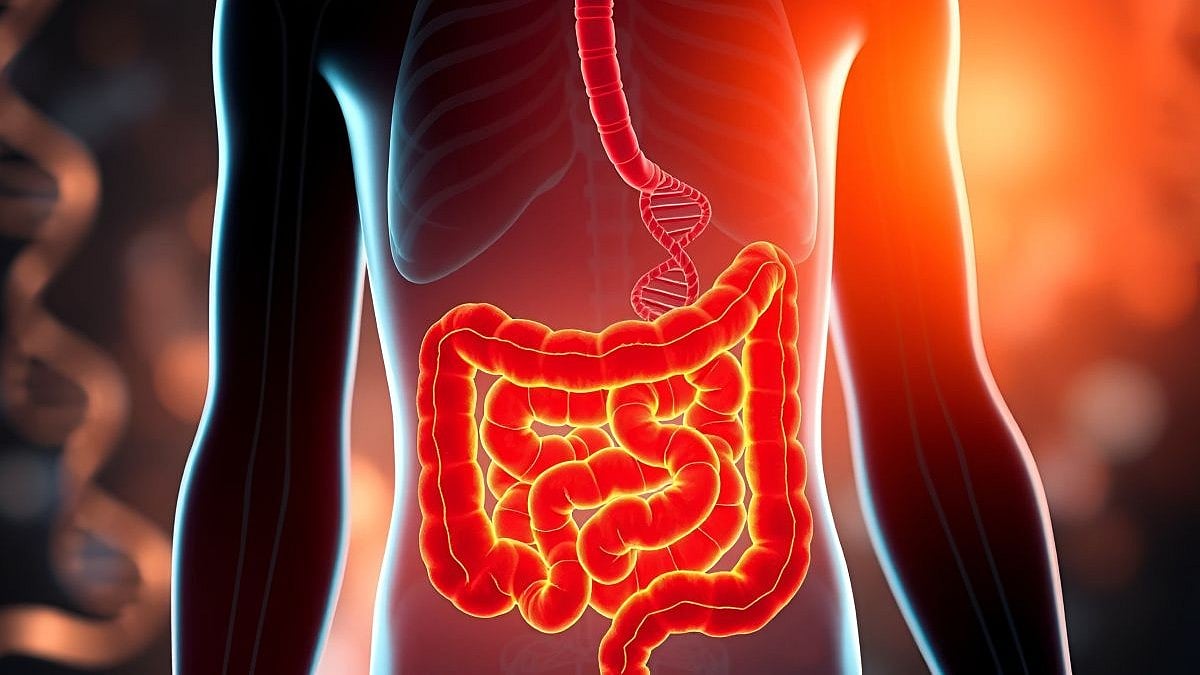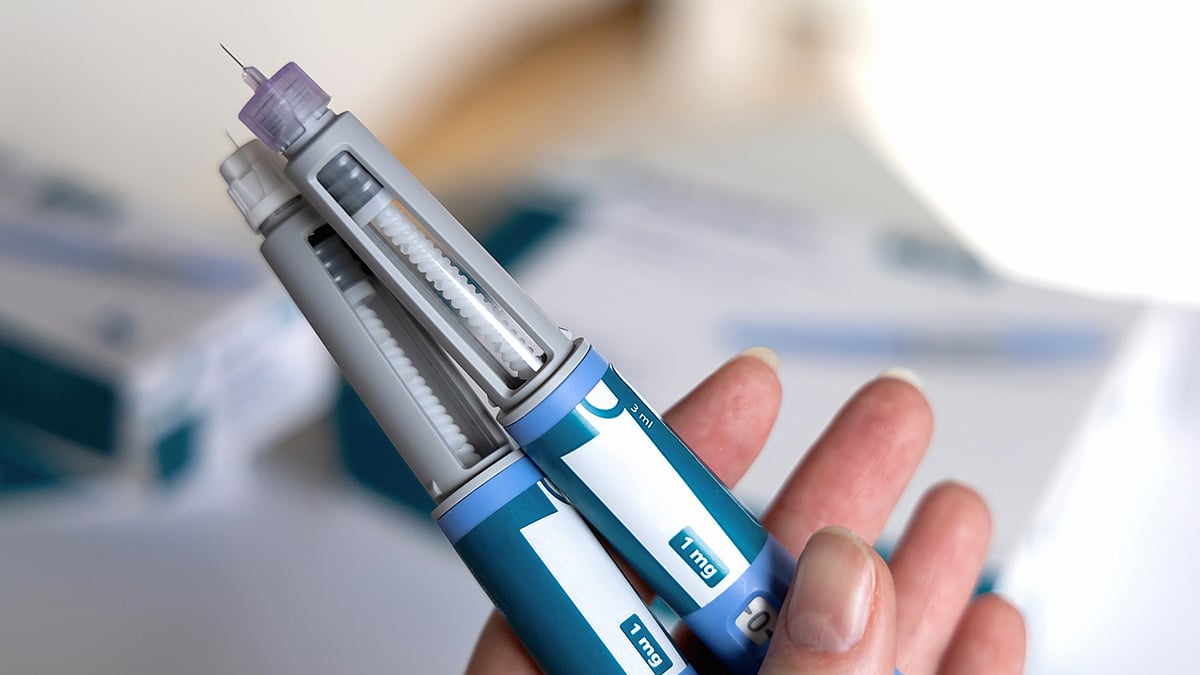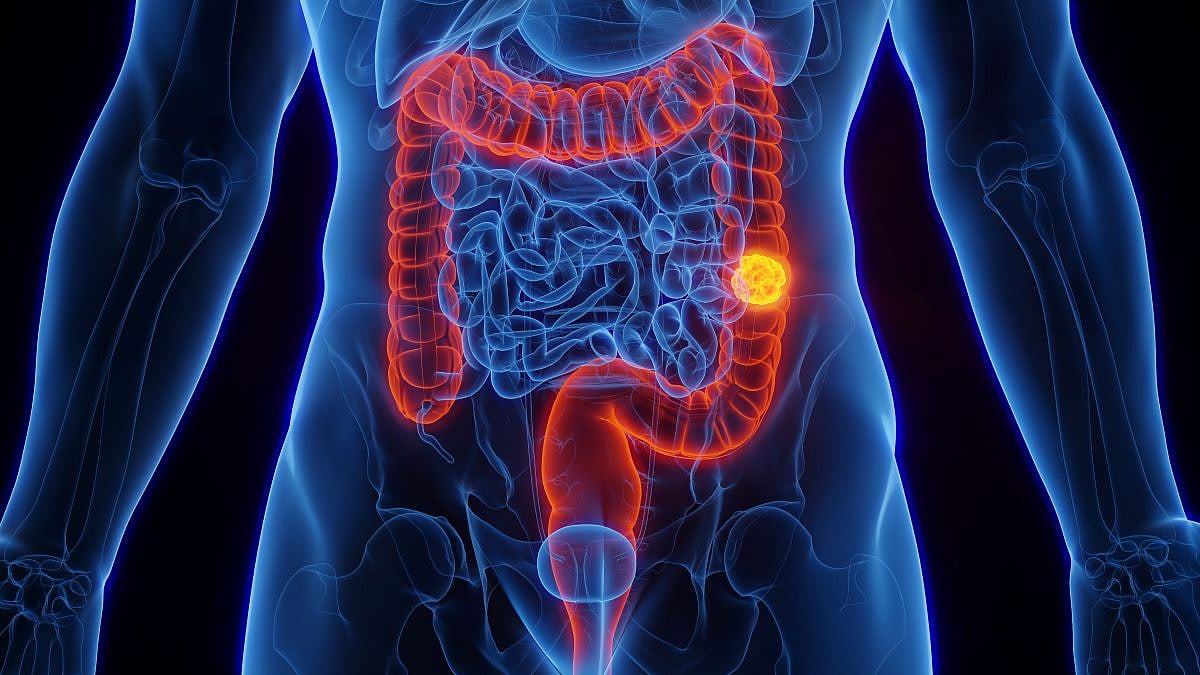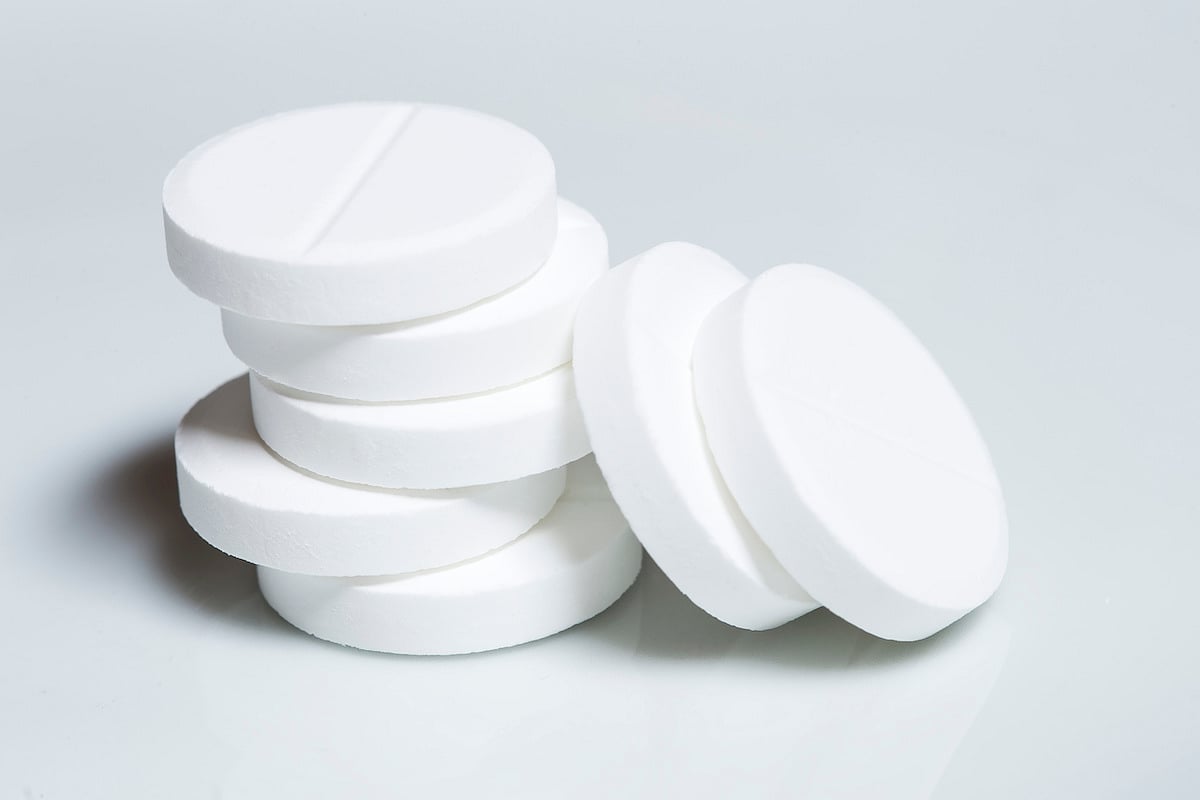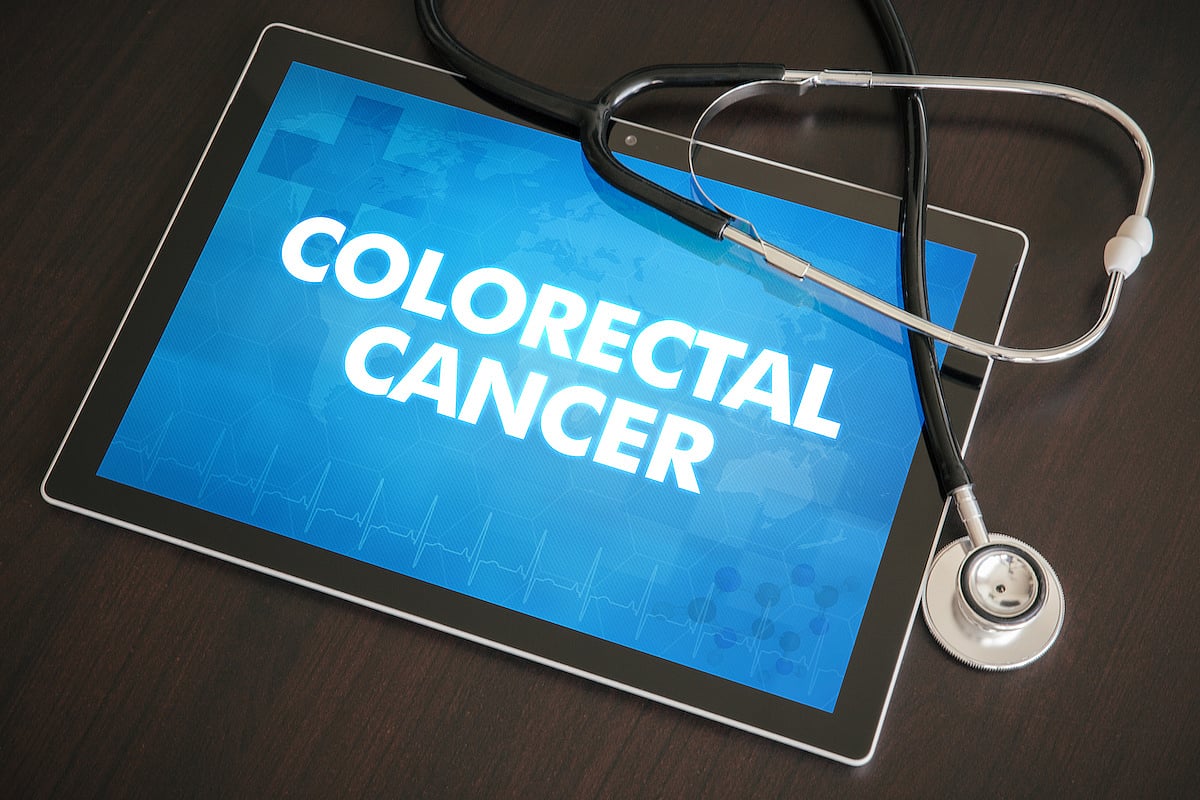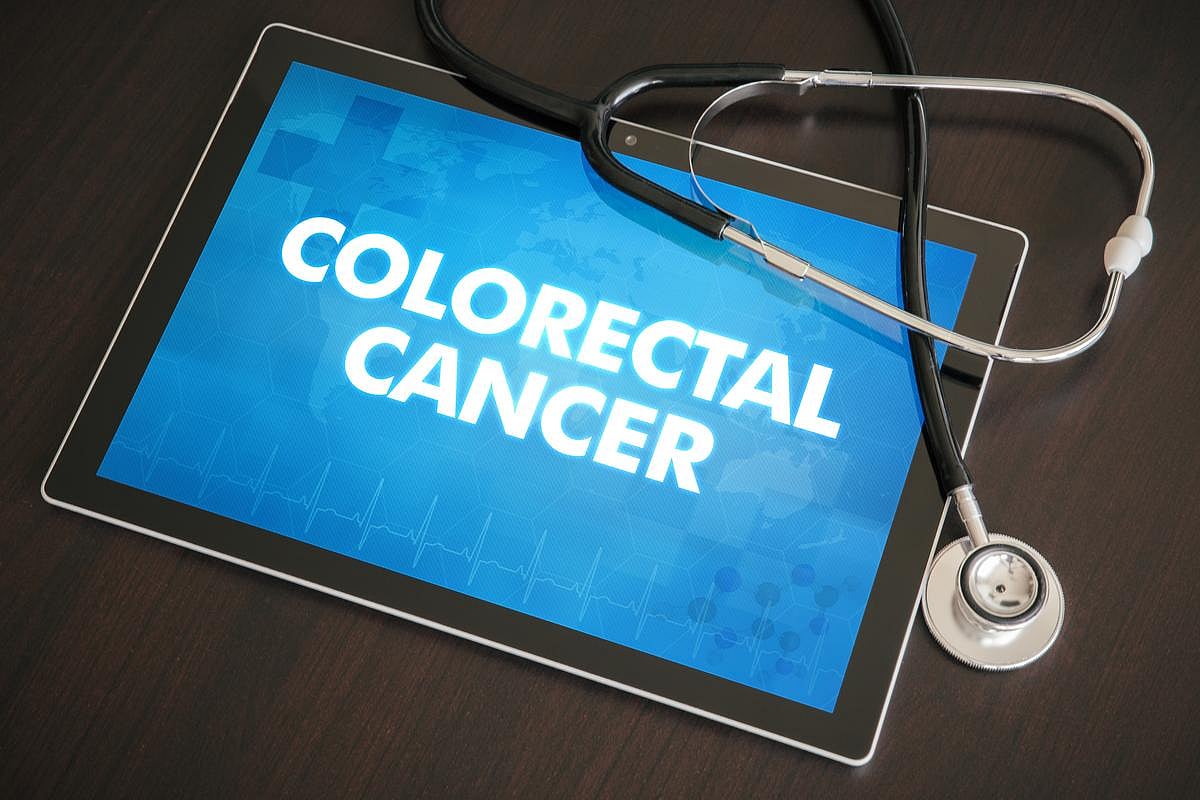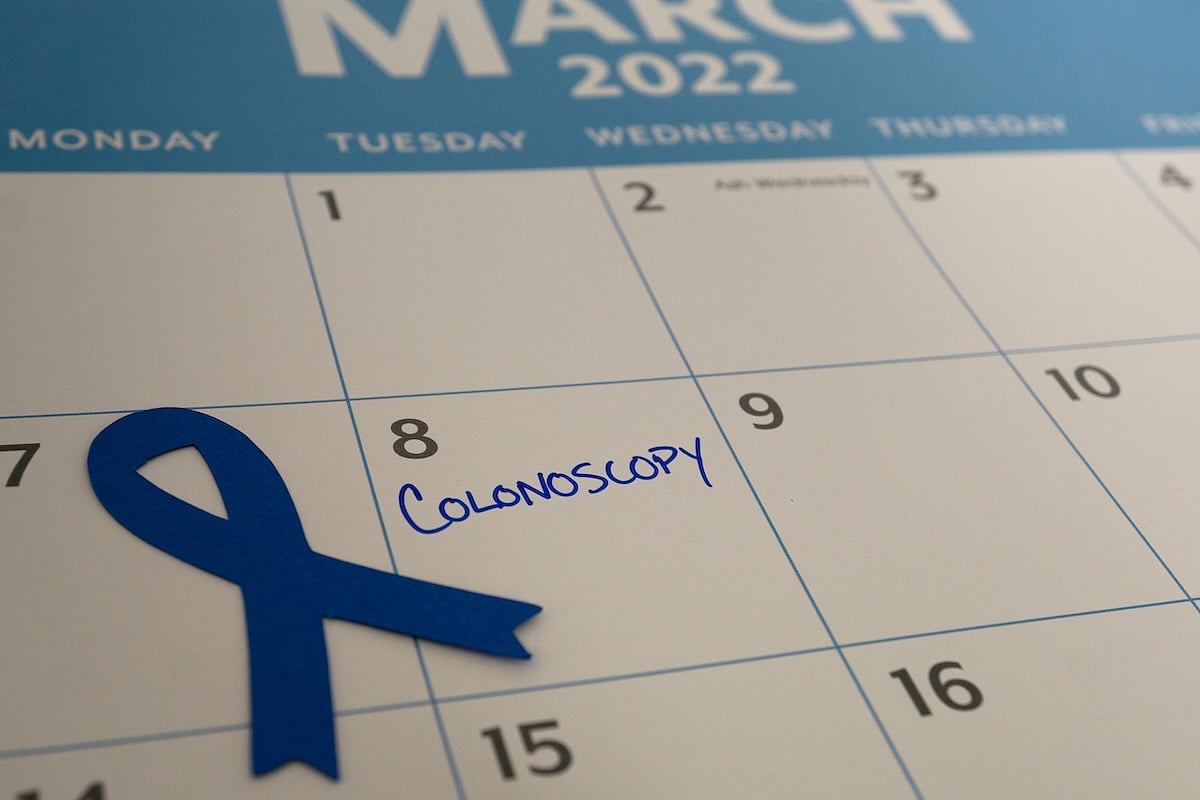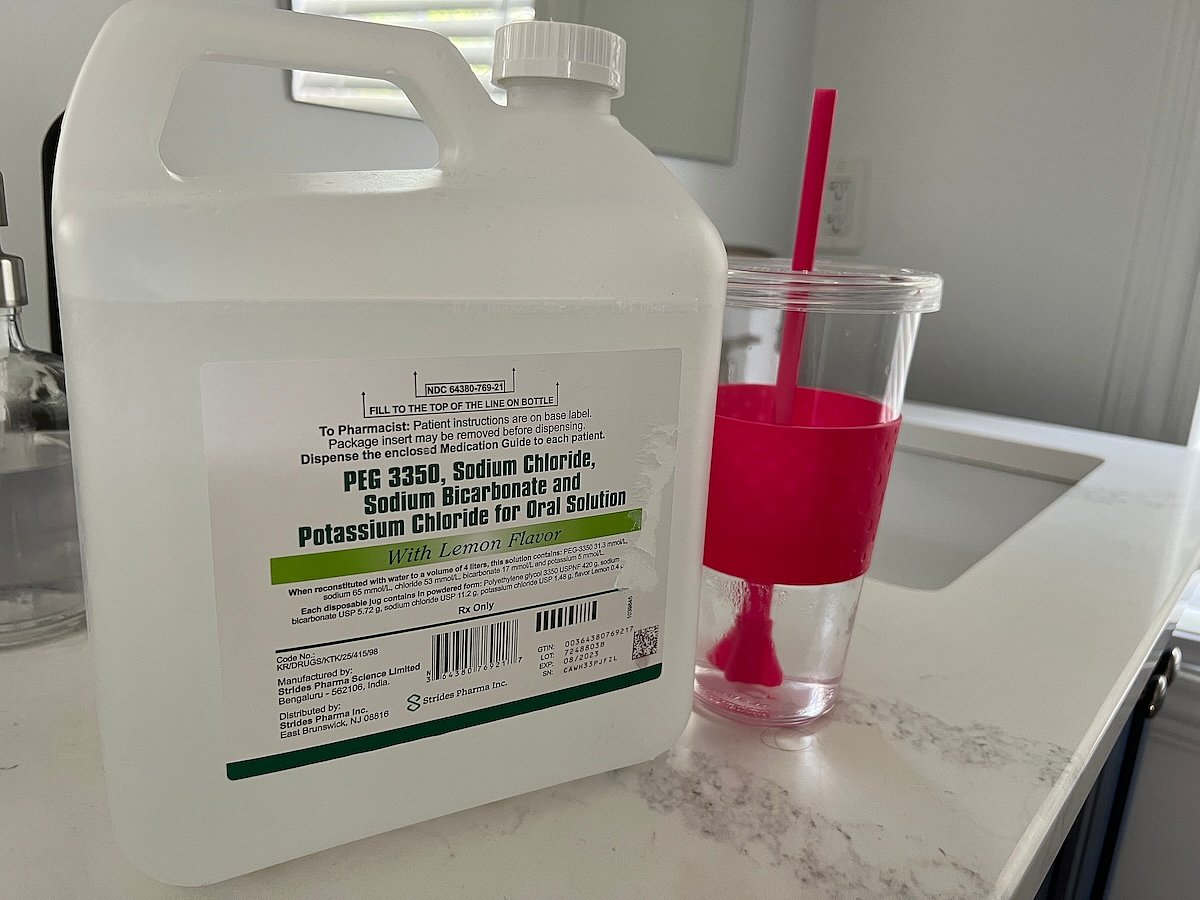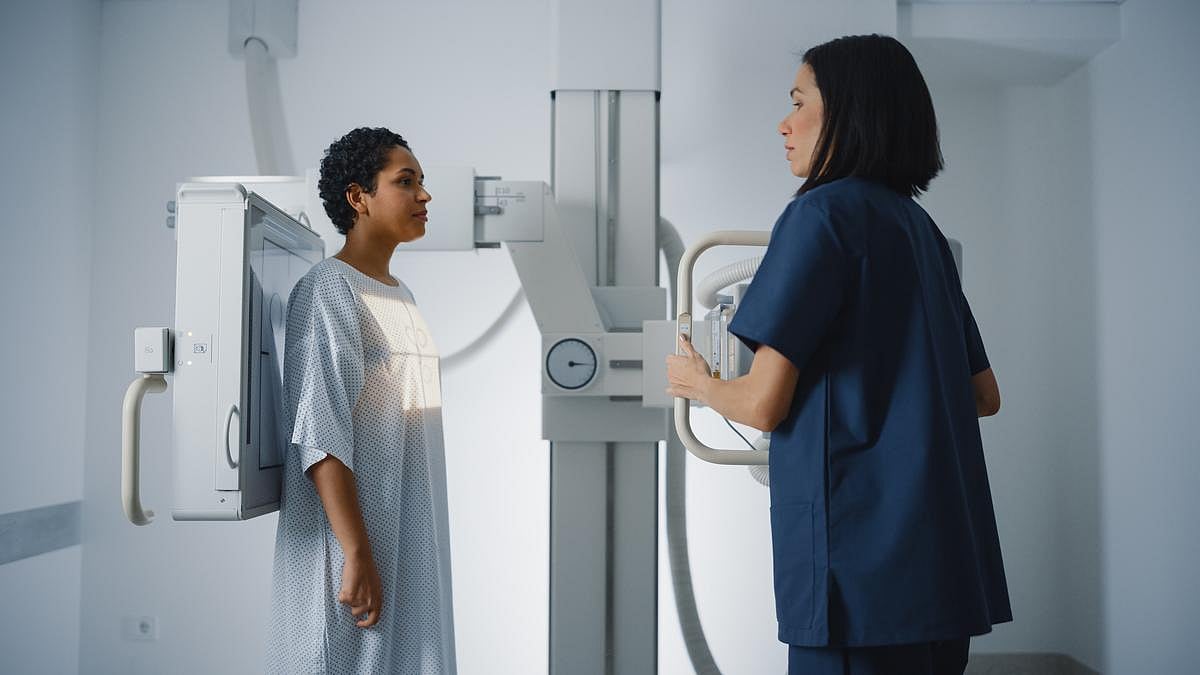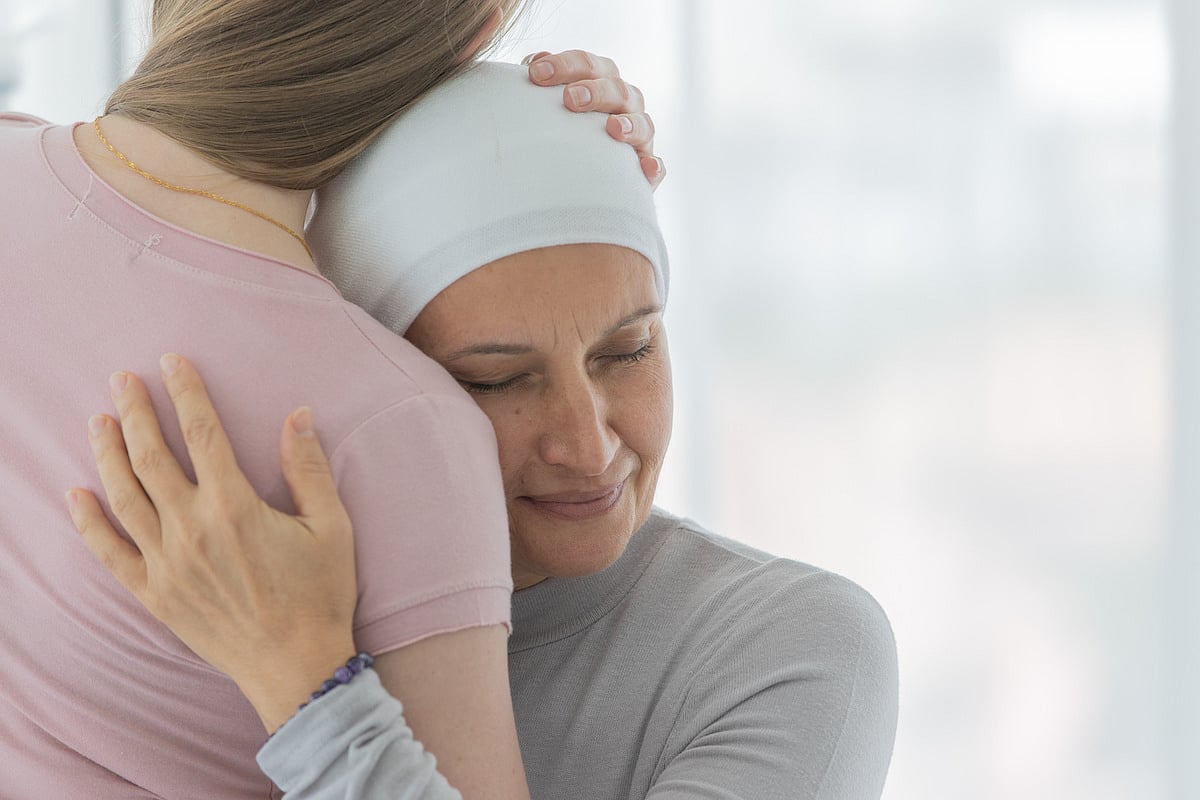Get Healthy!
Results for search "Cancer: Colon".
Health Videos - 10
Health News Results - 134
Heavy drinking increases a person’s risk of colon cancer over their lifetime, a new study says.
People who routinely have 14 or more drinks a week have a higher risk of colon and rectal cancer compared to those who partake in little to no alcohol, researchers reported Jan....
- Dennis Thompson HealthDay Reporter
- |
- January 27, 2026
- |
- Full Page
Colon cancer is now the No. 1 cause of cancer deaths in Americans under 50.
It claimed that spot seven years earlier than previously projected.
Colon cancer deaths among people under 50 have risen roughly 1% each year since 2005, researchers reported Jan. 22 in the Journal of the American Medical Asso...
- I. Edwards HealthDay Reporter
- |
- January 23, 2026
- |
- Full Page
Regular physical activity — especially walking — can significantly reduce fatigue among people with colon cancer, a new study says.
Fatigue scores improved significantly within a couple of years if colon cancer patients adopted an exercise regimen, according to
- Dennis Thompson HealthDay Reporter
- |
- January 8, 2026
- |
- Full Page
Ozempic and Wegovy might help people avoid colon cancer as well as promote weight loss or control diabetes, a new study says.
People who took a GLP-1 drug were 36% less likely to get colon cancer than people who took aspirin, according to
Younger adults who eat lots of ultra-processed foods are more likely to develop polyps that can become colon cancer, a new study says.
Women under 50 whose diets contained the largest amounts of ultra-processed foods had a 45% higher risk of developing pre-cancerous polyps in th...
- Dennis Thompson HealthDay Reporter
- |
- November 17, 2025
- |
- Full Page
Rectal bleeding could be a powerful early warning sign of colon cancer among younger adults, a new study says.
Such bleeding increased more than eightfold the odds of a colon cancer diagnosis among people younger than 50,
About 19 million U.S. adults take fish oil supplements, often to protect against chronic diseases. But new research suggests their ability to lower colon cancer risk may depend on a single gene.
Scientists at the University of Michigan and the University of Texas MD And...
- I. Edwards HealthDay Reporter
- |
- September 24, 2025
- |
- Full Page
Aspirin can cut by more than half the risk that colon cancer will come back following initial treatment, a new clinical trial has found.
Daily aspirin reduced by 55% the risk of cancer recurrence in patients whose colorectal cancer is driven by a genetic mutation, researchers re...
- Dennis Thompson HealthDay Reporter
- |
- September 18, 2025
- |
- Full Page
Automatically mailing a stool test kit to people’s homes might be the best way to boost colon cancer screening among younger adults, a new study says.
More 45- to 49-year-olds went ahead with cancer screening when they received an unsolicited stool test kit in the mail, ra...
- Dennis Thompson HealthDay Reporter
- |
- August 7, 2025
- |
- Full Page
There’s been a steep increase in colon cancer cases among adults 45 to 49 in recent years, and that’s a good thing, experts say.
This upsurge means that more colon cancers are being caught at an earlier, more treatable stage, thanks to a decision to lower the screeni...
- HealthDay Reporter
- Dennis Thompson
- |
- August 6, 2025
- |
- Full Page
Firefighters work hard saving lives, and in process put their own lives at heightened risk from skin, kidney and other types of cancers, a new American Cancer Society (ACS) study finds.
“Although this isn’t favorable news, this study shines a spotlight on the long-term risks firefighters face beyond the immediate dangers of fighting a fire,” said lead author
You try one of the new blood-based tests for colon cancer, and unfortunately, the results come back “abnormal.”
Those are alarming findings, of course. But for too many U.S. patients, no further steps are taken, a new study finds.
“Blood-based colorectal cancer screenin...
- HealthDay Reporter
- Ernie Mundell
- |
- July 30, 2025
- |
- Full Page
GI cancers among people 50 and younger are rising at an alarming rate, increasing in the U.S. faster than any other type of early onset cancer, according to a pair of new studies.
Cancers of the colon, stomach and esophagus have all increased in recent years, threatening the health of younger Americans, researchers say.
Between 2010 and 2019, cases of young-onset GI cancers rose by ...
- HealthDay Reporter
- Dennis Thompson
- |
- July 21, 2025
- |
- Full Page
FRIDAY, June 13, 2025 (HealthDay News) — CT scans might be able to prevent more colon cancers than stool DNA tests, a new study says.
CT colonography performed every three to five years could ward off more cases of cancer than DNA testing of stool to look for evidenc...
- HealthDay Reporter
- Dennis Thompson
- |
- June 13, 2025
- |
- Full Page
What you eat after a colon cancer diagnosis could do more than affect your energy or digestion — it might impact your chance of survival.
Researchers looked at more than 1,600 patients with stage 3 colon cancer. They found that those who ate the most proinflammato...
- HealthDay Reporter
- I. Edwards
- |
- June 4, 2025
- |
- Full Page
A structured exercise program helped colon cancer survivors live longer and lowered their odds for a relapse, a major international study shows.
The program lasted three years and included regular meetings with a fitness coach, Associated Press reported. <...
- HealthDay Reporter
- I. Edwards
- |
- June 2, 2025
- |
- Full Page
Popular GLP-1 weight loss drugs like Ozempic and Zepbound can help reduce a woman’s risk for as many as 14 cancers associated with obesity, a new study says.
People taking a GLP-1 drug had a 7% lower risk of developing an obesity-related canc...
- HealthDay Reporter
- Dennis Thompson
- |
- May 28, 2025
- |
- Full Page
Colon cancer cases have been increasing among younger adults, and now researchers think they’ve identified a potential culprit.
A bacterial toxin called colibactin, produced by certain strains of E. coli, appears to alter gut DNA in a way that prompts colon cancer...
- HealthDay Reporter
- Dennis Thompson
- |
- April 28, 2025
- |
- Full Page
A Kaiser Permanente colon cancer screening initiative put a huge dent in cancer cases and deaths over two decades, a new study says.
The systematic outreach program doubled colon cancer screening rates, researchers are scheduled to report at the upcoming Digestive Disease Week m...
- HealthDay Reporter
- Dennis Thompson
- |
- April 25, 2025
- |
- Full Page
Natural disasters fueled by climate change might wind up increasing cancer deaths, a new study suggests.
Rates of colon cancer diagnoses dropped during and after Hurricanes Irma and Maria hit Puerto Rico two weeks apart, as well as during the
Personalized support can help more people at risk of colon cancer attend a potentially life-saving colonoscopy appointment, a new study says.
About 55% of people assigned a patient navigator got a follow-up colonoscopy after their stool test revealed a risk of colon cancer, comp...
- HealthDay Reporter
- Dennis Thompson
- |
- April 1, 2025
- |
- Full Page
Colon cancer is a particularly deadly form of the disease, the second most common cause of cancer deaths in the U.S.
But patients diagnosed with colon cancer also need to be concerned about their heart health, especially if they’re younger adults, a new study says.
C...
- HealthDay Reporter
- Dennis Thompson
- |
- March 26, 2025
- |
- Full Page
Colon cancers have been steadily increasing among people younger than 50, even as cases have declined among seniors.
That’s why guidelines now recommend that colon cancer screening start at 45, five years earlier than previously advised, Dr. Jennifer Davids, chief of colon and rectal surgery at Boston M...
- HealthDay Reporter
- Dennis Thompson
- |
- March 24, 2025
- |
- Full Page
The best evidence yet that cutting-edge Alzheimer’s disease drugs might indeed ward off the degenerative brain disease has emerged from a small-scale study.
An experimental drug that clears amyloid beta from the brain cut the risk of developing A...
- HealthDay Reporter
- Dennis Thompson
- |
- March 24, 2025
- |
- Full Page
Colon cancer is one of the most dangerous cancers affecting women today.
Despite its impact, many women miss early warning signs, mistaking them for everyday digestive issues or menopause. Understanding the risks, symptoms and importance of early screening could be life-saving.
- HealthDay Reporter
- I. Edwards
- |
- March 16, 2025
- |
- Full Page
A new risk prediction model can help identify people who are likely to develop early-onset colon cancer or small non-cancerous growths on other organs, researchers say.
The model relies on four factors associated with early-onset colon cancer: a family history of colon cancer, BMI, sex and smoking. (BMI is shorthand for body mass index, an estimate of body fat based on height and weight.)...
- HealthDay Reporter
- Dennis Thompson
- |
- March 7, 2025
- |
- Full Page
Frequent exercise can help colon cancer survivors live longer, perhaps even outlasting average folks, a new study suggests.
Colon cancer patients who were very physically active had three-year survival rates that were slightly higher than the general population, researchers report in the journal
- HealthDay Reporter
- Dennis Thompson
- |
- February 24, 2025
- |
- Full Page
Cancer screenings can save lives by detecting cancer early, when treatment is most effective.
With an estimated 2 million new cancer cases expected in 2025, regular screenings are more important than ever, according to the American Cancer Society.
February is National Cancer Prevention Month, which make...
- HealthDay Reporter
- India Edwards
- |
- February 15, 2025
- |
- Full Page
You may be less likely to develop an especially lethal form of colon cancer if you're a longtime consumer of yogurt, new research finds.
Folks who ate two or more servings of yogurt per week for years had a 20% lower odds for an aggressive type of tumor typically found ...
- HealthDay Reporter
- Ernie Mundell
- |
- February 13, 2025
- |
- Full Page
Daily low-dose aspirin can help prevent cancers from returning in about a third of colon cancer patients, a new study says.
Taking 160 milligrams of aspirin a day cuts the risk of cancer recurrence in half among colon cancer patients with a mutation in their PI3K genes, research...
- HealthDay Reporter
- Dennis Thompson
- |
- January 29, 2025
- |
- Full Page
An experimental blood test can effectively and accurately detect colon cancer in middle-aged folks and seniors, a new study says.
The blood test was 81% accurate in detecting colon cancer among people who have the disease, researchers reported at the 2025 American Society of Cli...
- HealthDay Reporter
- Dennis Thompson
- |
- January 28, 2025
- |
- Full Page
More young people around the world are falling prey to colon cancer, a new study shows.
Colon cancer rates in young adults have risen in 27 out of 50 countries around the world, including the United States, researchers found.
These rates among young adults are rising even as they’ve rema...
- HealthDay Reporter
- Dennis Thompson
- |
- December 16, 2024
- |
- Full Page
Fatty, salty and sugary ultra-processed foods could be increasing people’s risk of colon cancer by spurring chronic inflammation in the gut.
In a new study, colon tumors taken from people with poor diets had higher levels of pro-inflammatory biochemicals, as well as lower ...
- HealthDay Reporter
- Dennis Thompson
- |
- December 10, 2024
- |
- Full Page
Colon cancer is increasing at an alarming rate among young adults, but a new study says better eating habits could turn that trend around.
About 20% of diagnosed colon cancers occur in people aged 54 and younger, nearly double the rate seen three decades ago, according to the Am...
- HealthDay Reporter
- Dennis Thompson
- |
- December 6, 2024
- |
- Full Page
“An ounce of prevention is worth a pound of cure,” founding father Benjamin Franklin once said.
That’s definitely true of cancer, a new study has found.
Cancer prevention and screening has saved more people from five types of cancer during the past 45 years than advances in tr...
- HealthDay Reporter
- Dennis Thompson
- |
- December 5, 2024
- |
- Full Page
People are three times more likely to undergo at-home colon cancer screening if they’re provided a free test, a new study says.
About 30% of patients mailed a free stool test kit completed their screening within six months, compared with about 10% of those who weren’...
- HealthDay Reporter
- |
- November 26, 2024
- |
- Full Page
Actor James Van Der Beek, perhaps best known for his role as Dawson Leery in the popular television series "Dawson's Creek," has announced that he has been diagnosed with colorectal cancer.
"I have colorectal cancer. I’ve been privately dealing with this diagnosis and have been taking steps to resolve it, with the support of my incredible family,” the 47-year-old star first to...
- HealthDay Reporter
- Robin Foster
- |
- November 4, 2024
- |
- Full Page
Everyone knows that colonoscopies save lives, but that doesn't make drinking a lot of liquid laxatives in preparation for the procedure any less daunting.
Luckily, one expert has some helpful tips on how to take some of the pain out of the process.
The purpose of a colonoscopy is to examine the colon and rectum for abnormalities such as polyps,
A lack of health insurance coverage raises the risk that cancers among Black and Hispanic Americans will be caught too late, a new study suggests.
Being uninsured accounts for a significant proportion of racial and ethnic disparities in cancers that are only detected at a l...
- HealthDay Reporter
- Dennis Thompson
- |
- October 30, 2024
- |
- Full Page
Middle-aged folks facing a colon cancer screening now have a blood test they can choose over a standard colonoscopy.
However, the blood test isn't as effective as colonoscopy at detecting and preventing colon cancer, a new review finds.
About two and a half times more colon cancer deaths can b...
- HealthDay Reporter
- Dennis Thompson
- |
- October 29, 2024
- |
- Full Page
Having close family and friends who care about their health makes women more likely to get regularly screened for cancer, a new study has found.
Women are more likely to undergo regular cancer screening if they have a tighter web of social and emotional connections, researchers reported Oct. 17 in the journal Cancer Causes & Contro...
- HealthDay Reporter
- Dennis Thompson
- |
- October 18, 2024
- |
- Full Page
Colon cancers are increasing among younger Americans, so much so that experts advised in 2021 that colonoscopy screening begin at the age of 45, not 50 as had been previously recommended.
Now, research shows the new guideline may have led to a tripling in the use of the gold-standard screen among folks ages 45 to 49.
Still, in terms of the absolute number of people screened, colonos...
- HealthDay Reporter
- Ernie Mundell
- |
- October 4, 2024
- |
- Full Page
Food left in the stomach or stool left in the bowel can impede a doctor's ability to successfully perform an endoscopy or colonoscopy.
Now, research finds this scenario is more likely if the patient is taking popular new weight-loss meds such as Ozempic
- HealthDay Reporter
- Ernie Mundell
- |
- October 1, 2024
- |
- Full Page
There are clues that red and processed meats could be driving the increased risk of colon cancer in young adults, a new study claims.
Younger colon cancer patients typically have higher levels of metabolites created by the digestion of an amino acid called arginine, researchers ...
- HealthDay Reporter
- Dennis Thompson
- |
- August 16, 2024
- |
- Full Page
Screening for cancer saves lives, but a new report shows it comes with a hefty price tag: The United States spends at least $43 billion annually on tests that check for five major cancers.
Published Monday in the Annals of Internal Medicine, the new analysis focused on screenings for br...
- HealthDay Reporter
- Robin Foster
- |
- August 6, 2024
- |
- Full Page
It's long been known that a daily dose of low-dose aspirin helps keep colon cancer at bay.
But new research suggests that those who benefit most are folks whose lifestyles up their odds for the disease in the first place.
“Our results show that aspirin can p...
- HealthDay Reporter
- Ernie Mundell
- |
- August 1, 2024
- |
- Full Page
Cancer rates are rising among Gen Xers and millennials, a new study reports.
Successively younger generations are more frequently being diagnosed half of the 34 known cancer types, researchers found.
For example, people born in 1990 have two to three times higher...
- HealthDay Reporter
- Dennis Thompson
- |
- August 1, 2024
- |
- Full Page
The U.S. Food and Drug Administration on Monday approved a new blood test that can spot colon cancer.
In late May, an FDA advisory panel had voted 7-2 that the benefits outweigh the risks when using the Guardant Health's Shield test for
A simple home screening test for colon cancer can reduce the risk of dying from the disease by 33%, a new study shows.
Results indicate that undergoing annual at-home FIT (fecal immunochemical test) screening “is as good as getting a colonoscopy every 10 years for screenin...
- HealthDay Reporter
- Dennis Thompson
- |
- July 26, 2024
- |
- Full Page












